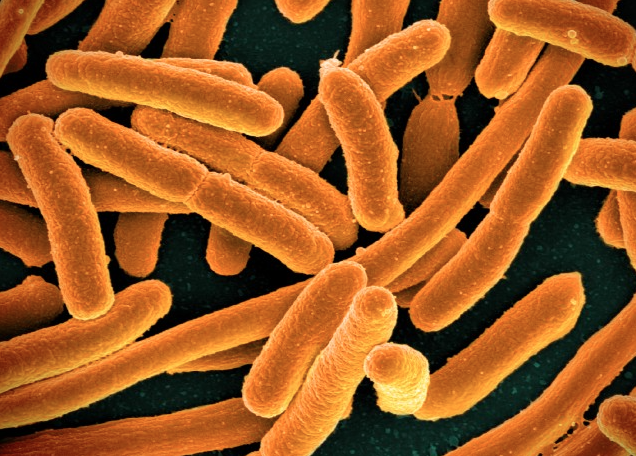New Scientist
Image: NIAID
Harder, better, faster, stronger. When cells cooperate, they achieve the otherwise impossible, something that could eventually lead to smart cancer therapies.
Instead of engineering cells to work as tiny individuals, researchers are working on a new class of cellular machines that “talk” to each other – and behave in more sophisticated ways. Put simply, synthetic biology is going multicellular.
“Initially, there was more emphasis on engineering individual cells and real progress was made,” says Ron Weiss at the Massachusetts Institute of Technology. “But now there are an increasing number of demonstrations showing what’s possible with multiple cells. It’s another dimension.”
The latest example comes from a team led by Matthew Bennett at Rice University in Houston, Texas. They developed a system that at its simplest encourages cooperation between two distinct populations of Escherichia coli. One produces an “activator” signalling molecule that triggers the bacteria in the second population to produce a “repressor”. This signal can travel the other way and turn off production of the activating molecule. Read more on newscientist.com…








